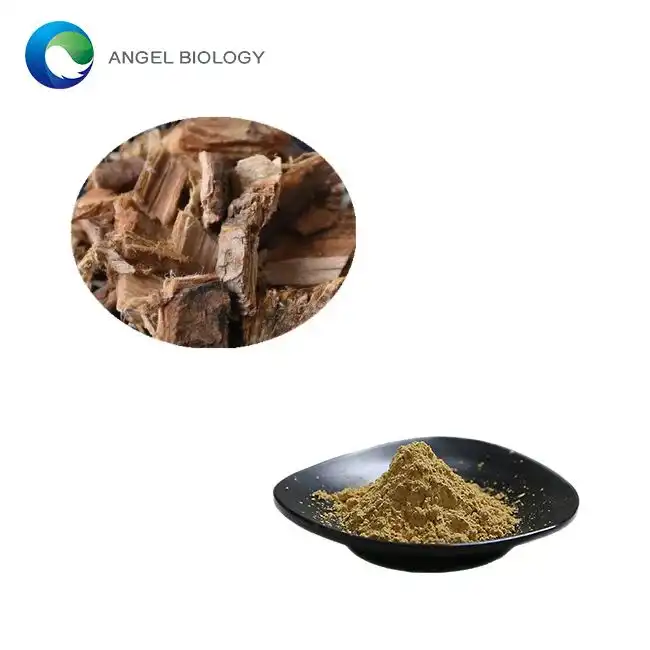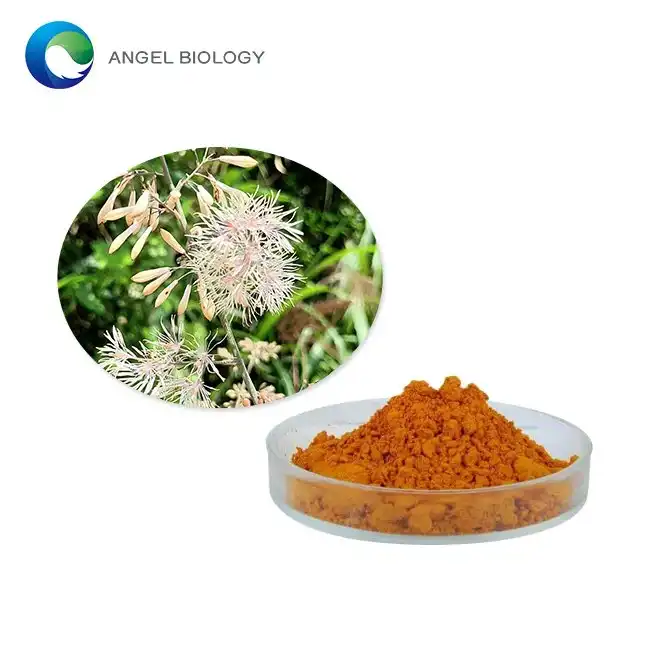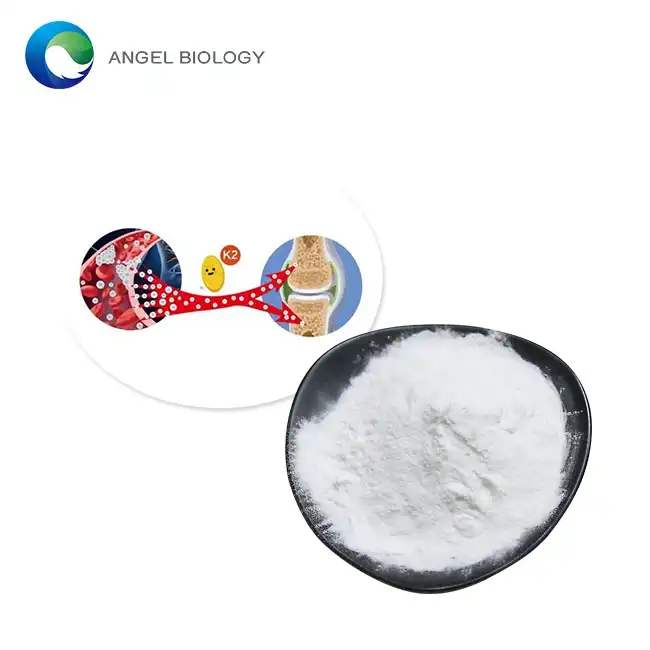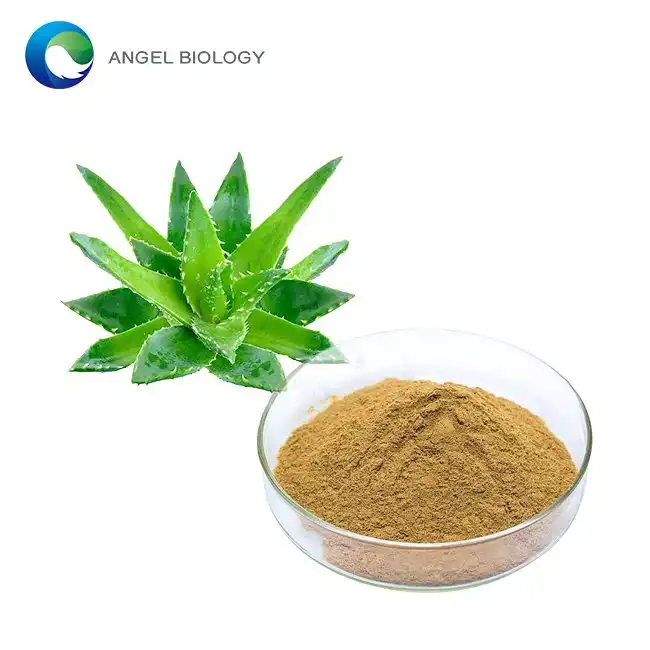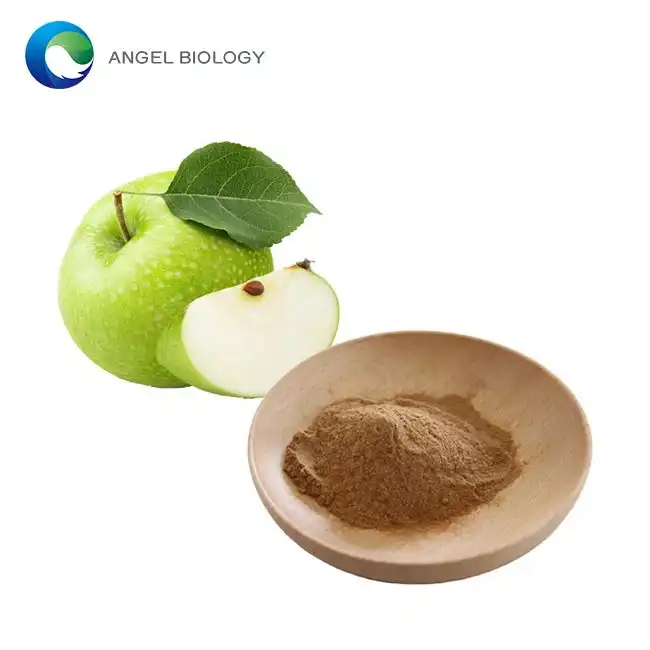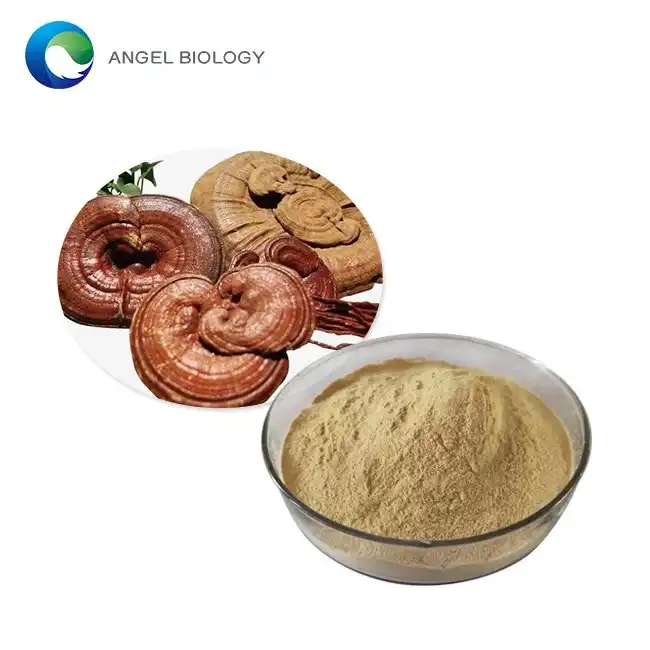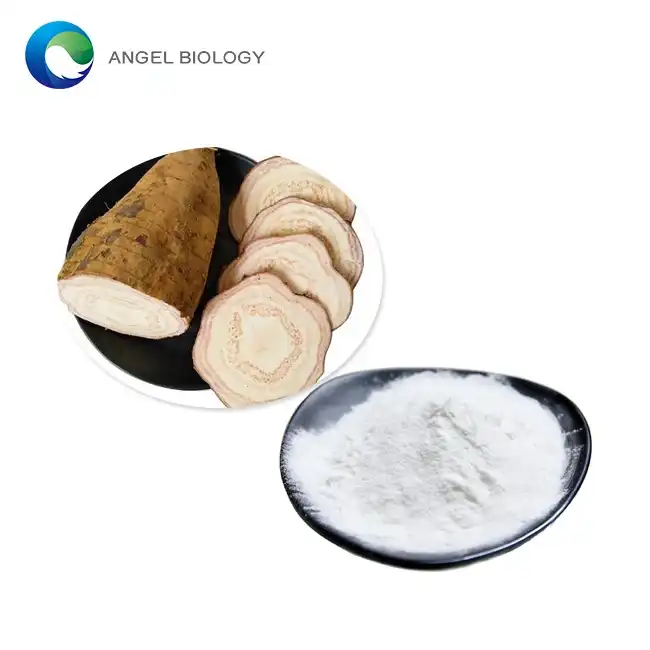Traditional vs. Modern Uses of Astragalus Extract
Astragalus has been a cornerstone in Traditional Chinese Medicine (TCM) for millennia. Practitioners have long utilized this herb to bolster the body's defenses against various ailments. In TCM, Astragalus is believed to tonify the 'Qi' or vital energy, particularly benefiting the spleen and lungs.
Traditionally, Astragalus was employed to:
- Enhance overall immunity
- Promote longevity
- Support respiratory health
- Aid in recovery from fatigue and weakness
Modern research has begun to shed light on the scientific basis for these traditional uses. Contemporary studies suggest that Astragalus extract powder may offer a range of health benefits, including:
- Immunomodulation: Enhancing the body's natural defense mechanisms
- Cardiovascular support: Potentially improving heart function and blood pressure regulation
- Antioxidant effects: Combating oxidative stress and cellular damage
- Adaptogenic properties: Helping the body manage stress more effectively
The transition from traditional to modern use has been marked by a deeper understanding of the active compounds in Astragalus. Scientists have identified several key phytochemicals, including polysaccharides, saponins, and flavonoids, which are believed to be responsible for its therapeutic effects.
One notable modern application is the use of Astragalus in supporting cancer patients. Some studies suggest that it may help mitigate the side effects of chemotherapy and potentially enhance the efficacy of certain cancer treatments. However, it's crucial to note that more research is needed in this area, and patients should always consult with their healthcare providers before incorporating any supplements into their treatment regimen.
The evolution of Astragalus use from traditional to modern medicine exemplifies how ancient herbal wisdom can be validated and refined through scientific inquiry. As research continues, we may uncover even more potential applications for this versatile herb.
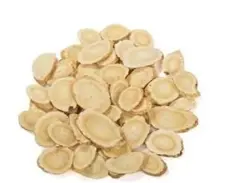
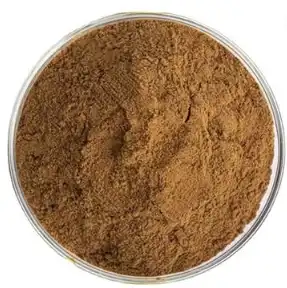
Can Astragalus Powder Lower Blood Sugar?
The potential of Astragalus to influence blood sugar levels has been a subject of growing interest in the scientific community. While traditional use has long suggested a connection between Astragalus and metabolic health, modern research is now providing intriguing insights into this relationship.
Several studies have investigated the effects of Astragalus extract powder on blood glucose regulation. The results, while promising, underscore the complexity of this herb's impact on metabolic processes.
Key findings from recent research include:
- Improved insulin sensitivity: Some studies suggest that Astragalus may enhance the body's responsiveness to insulin, potentially aiding in better glucose uptake by cells.
- Reduced glucose absorption: Certain compounds in Astragalus might inhibit the absorption of glucose in the intestines, potentially leading to lower post-meal blood sugar spikes.
- Enhanced glucose metabolism: Research indicates that Astragalus may influence enzymes involved in glucose metabolism, potentially improving the body's ability to process blood sugar.
- Pancreatic beta-cell protection: Some studies suggest that Astragalus may help protect the insulin-producing cells in the pancreas, which could be beneficial for long-term blood sugar control.
While these findings are encouraging, it's important to approach them with a balanced perspective. The effectiveness of Astragalus in blood sugar management can vary among individuals, and its impact may be influenced by factors such as dosage, duration of use, and overall health status.
Moreover, it's crucial to note that Astragalus should not be considered a replacement for conventional diabetes treatments. Individuals with diabetes or those concerned about their blood sugar levels should always consult with a healthcare professional before incorporating Astragalus or any other supplement into their regimen.
The potential blood sugar-lowering effects of Astragalus highlight the need for further research. As our understanding of this herb's mechanisms of action deepens, we may uncover more precise ways to harness its benefits for metabolic health.
In the context of blood sugar management, Astragalus serves as a prime example of how traditional herbal remedies can inform modern medical research. By combining ancient wisdom with rigorous scientific investigation, we continue to unlock the therapeutic potential of natural compounds like those found in Astragalus extract powder.
Antioxidant Properties of Astragalus Phytochemicals
The antioxidant capabilities of Astragalus have garnered significant attention in the scientific community. These properties are primarily attributed to the diverse array of phytochemicals present in the herb. Understanding the antioxidant profile of Astragalus provides valuable insights into its potential health benefits and therapeutic applications.
Key phytochemicals in Astragalus extract powder with antioxidant properties include:
- Flavonoids: These compounds, including quercetin and kaempferol, are known for their potent antioxidant activities. They help neutralize harmful free radicals and reduce oxidative stress in the body.
- Polysaccharides: Unique to Astragalus, these complex sugars not only support immune function but also demonstrate antioxidant effects. They may help protect cells from oxidative damage.
- Saponins: These compounds, particularly astragalosides, have been shown to possess antioxidant properties. They may contribute to the herb's overall protective effects against cellular damage.
- Phenolic compounds: Various phenolic substances in Astragalus contribute to its antioxidant capacity, helping to combat oxidative stress at the cellular level.
The antioxidant properties of these phytochemicals manifest in several ways:
- Free radical scavenging: Astragalus compounds can directly neutralize harmful free radicals, preventing them from causing cellular damage.
- Enhancement of endogenous antioxidants: Some studies suggest that Astragalus may boost the body's production of natural antioxidants, such as superoxide dismutase and glutathione.
- Mitochondrial protection: The antioxidants in Astragalus may help protect mitochondria, the cellular powerhouses, from oxidative damage, potentially supporting overall cellular health and energy production.
- DNA protection: By combating oxidative stress, Astragalus antioxidants may help protect genetic material from damage, potentially supporting overall cellular health and longevity.
The antioxidant properties of Astragalus have implications for various aspects of health:
- Cardiovascular health: By reducing oxidative stress, Astragalus may help protect the heart and blood vessels from damage.
- Neuroprotection: The antioxidant effects may extend to the brain, potentially offering protection against neurodegenerative processes.
- Skin health: Topical application of Astragalus extracts rich in antioxidants may help protect the skin from environmental damage and signs of aging.
- Immune support: The antioxidant properties complement the immune-enhancing effects of Astragalus, potentially offering comprehensive support for overall health.
While the antioxidant potential of Astragalus is promising, it's important to note that the effectiveness can vary based on factors such as the specific extract used, dosage, and individual physiology. Moreover, the complex interplay between different phytochemicals in Astragalus may contribute to synergistic effects that are not fully understood yet.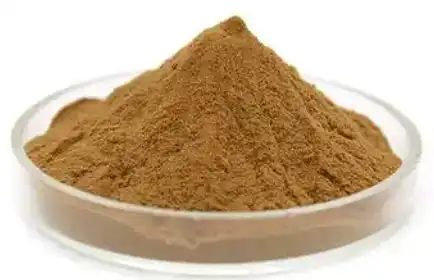
As research continues, we may uncover more about how the antioxidant properties of Astragalus can be optimally harnessed for health benefits. This ongoing exploration underscores the importance of viewing Astragalus not just as a single compound, but as a complex natural product with multifaceted therapeutic potential.
The antioxidant profile of Astragalus extract powder exemplifies the intricate ways in which natural compounds can support health. By continuing to study these properties, we deepen our understanding of how traditional herbs like Astragalus can be integrated into modern approaches to health and wellness.
Conclusion
The phytochemical profile and therapeutic uses of Astragalus extract powder showcase the remarkable potential of this ancient herb in modern health contexts. From its traditional roots to contemporary scientific validation, Astragalus continues to intrigue researchers and health enthusiasts alike. Its diverse array of bioactive compounds, including flavonoids, polysaccharides, and saponins, contribute to its wide-ranging health benefits, from immune support to potential blood sugar regulation and powerful antioxidant effects.
As we've explored, the traditional uses of Astragalus align surprisingly well with modern scientific findings, demonstrating the enduring wisdom of ancient healing practices. The potential blood sugar-lowering effects and the robust antioxidant properties of Astragalus extract powder open up exciting possibilities for its use in supporting metabolic health and combating oxidative stress.
However, it's crucial to approach the use of Astragalus extract powder with informed caution. While the research is promising, more studies are needed to fully understand its effects, optimal dosages, and potential interactions. As with any supplement, it's always advisable to consult with a healthcare professional before incorporating Astragalus into your health regimen.
At Angelbio, we're dedicated to bridging the gap between traditional wisdom and modern science. Our commitment to research, quality, and innovation drives us to provide high-end, natural ingredients that support global health. If you're interested in exploring the potential of Astragalus extract powder for your health or product formulations, we invite you to reach out to us. Our team of experts is ready to provide you with in-depth information and guidance tailored to your specific needs.
For more information or to discuss how Astragalus extract powder can benefit your health or product line, please contact us at angel@angelbiology.com. Let's work together to harness the power of nature for a healthier future.
References
1. Zhang, L., et al. (2020). "Astragalus membranaceus: A Review of its Protection Against Inflammation and Gastrointestinal Cancers." The American Journal of Chinese Medicine, 48(1), 1-13.
2. Liu, P., et al. (2019). "Bioactive Components and Pharmacological Actions of Astragalus membranaceus." Phytotherapy Research, 33(5), 1298-1317.
3. Ren, S., et al. (2021). "Astragalus polysaccharides: A review on their bioactivities and pharmacological potential." Carbohydrate Polymers, 258, 117680.
4. Wang, Y., et al. (2018). "The antioxidant properties of Astragalus membranaceus extract and its effect on cell longevity." Food & Function, 9(2), 1156-1166.



